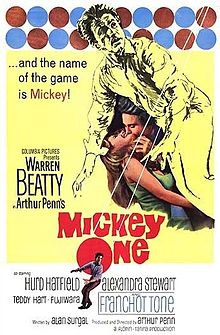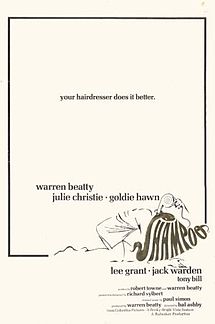
People knew she was smart and exceptionally well organised, says Mia Farrow of her late friend, Natalie Wood. Wood’s daughter, Natasha Gregson Wagner has produced this personal tribute to her mother, assembling film clips, home movies, photographs and interviews with friends, co-stars and her younger sister Courtney Wagner (who says her famous mother is difficult to access), as well as Robert Wagner, to whom Wood was married for the second time at the time of her death in November 1981. Wagner celebrated her 18th birthday with her after she had admired him aged 10 and their subsequent relationship and marriage played out on the covers of magazine, love’s young dream. They co-starred in All the Fine Young Cannibals and fellow cast member George Hamilton says, She made you feel important, not her. Her career ascended to new heights on Splendor in the Grass where she met Elia Kazan’s production assistant, Mart Crowley, extensively interviewed here, who became fast friends with Wood (and subsequently worked on Wagner’s smash hit 80s TV series Hart to Hart.) Contrary to popular belief he and Wagner both deny Warren Beatty broke up the marriage – it was already in trouble. Wagner puts it down to the pressures on her as she went straight to work on West Side Story without the rest of the cast’s rehearsal time. His career was experiencing a lull. They split, he moved to Rome and remained there for 3 years, and had daughter Katie with his next wife, Marion Marshall, Stanley Donen’s ex, becoming stepfather to her sons, (the late) Peter and Joshua Donen. Natasha reads from a letter she found written by her mother, an essay that was intended for publication in Ladies Home Journal but wasn’t released. She describes the two-year affair with Beatty as a collision from start to finish. She was involved with (among others) Frank Sinatra, Henry Jaglom, David Niven Jr and Michael Caine, as well as getting engaged to Arthur Loew Jr and Ladislav Blatnik the shoe king of Venezuela as someone amusingly recalls. She married British writer/producer Richard Gregson and had Natasha but was so besotted with her newborn that Gregson slept with Wood’s secretary and that was that. She and Wagner met at a party, sparks flew, they both cried afterwards and they remarried in July 1972, creating a large happy home on Canon Drive, Beverly Hills where they had a new baby together, daughter Courtney, hired beloved nanny Willy Mae, and had a very busy guest house with his stepsons, her stepchildren and various friends visiting. Josh Donen even moved in at Wood’s invitation, with movie stars and family attending their fabulous parties. It seemed to me that they should be together, says Josh. Friend Richard Benjamin says, It made you feel good to be there. Wood took her foot off the gas in terms of her career rearing her daughters even if Courtney sadly remembers that Wood was Natasha’s mother, while she relied on Willy Mae. She was totally happy. There’s a rewind to Wood’s own childhood, second daughter to a pushy Russian mother who got her noticed during the location shoot for a film in Santa Rosa which led to the family moving to Los Angeles and Orson Welles says in a TV interview, I was her first leading man, referring to Tomorrow Is Forever, when little Natalie Wood as Natasha Gurdin became, was line perfect while he kept fluffing his. Critic Julia Salamon says of her performance in Miracle on 34th Street, there’s no artifice … she was very sure-seeming in who she was. She injured her wrist on a set and covered it up forever after with a big bangle. Her mother constantly told her that a gypsy foretold that her second daughter would be world famous but beware of dark water, inculcating total fear in Wood. She was the sole breadwinner from 12 when her father Nick got injured and at the same time she entered regular school but had no airs or graces as her schoolfriend recalls. Daughter Natasha says, Being the daughter of a narcissistic controlling mother …. that’s played out in so many of her films, on the subject of the hysterical, dramatic, superstitious mother Maria who ran her life, living vicariously through her beautiful and successful child, pushing her on until Wood herself chose to do Rebel Without a Cause, the film which made her finally realise she could act and on the set she had an affair with director Nick Ray, decades her senior. Robert Redford admits she was responsible for his screen career beginning, insisting after she saw him on Broadway that the theatre actor be cast opposite her in Inside Daisy Clover and she just carried me along to This Property Is Condemned. Before that she had discovered on the set of comedy The Great Race that both Jack Lemmon and Tony Curtis were paid more and she insisted on parity. But she was in trouble, attending a psychiatrist five days a week, a practice she continued for 8 years, and ODd on pills one weekend during the shoot going to Mart Crowley’s room in her house calling for assistance. She went to hospital and returned to work the next Monday morning. Scenes on the psychiatrist’s couch from Splendour and Penelope are played, as if to state that without Method training Wood was sublimating her problems in the roles she chose. She was brave too. She was the emotional engine behind Bob & Carol & Ted & Alice, as Elliott Gould says, Natalie brought what the film needed. She had points in the film, which was very successful and she could afford to pick and choose her projects thereafter. She took a break of almost 5 years to rear her daughters and then made headlines with her return in the big TV movie event, The Cracker Factory. She reinvented herself in terms of cosmetics and styling with Michael Childers, the photographer who made her look as beautiful as she deserved entering her forties, never a good age for an actress. She appeared in From Here to Eternity, a water-cooler mini-series remake of the famous film. She shot The Last Married Couple in America with George Segal and he comments, She was very wise about how she dispensed herself. She was going to be making her first stage appearance in Anastasia. She went to North Carolina to shoot Brainstorm with director Douglas Trumbull. On the subject of their rumored affair, he says with no fuss, There was no physical charisma between her and Christopher Walken. [We can infer what we will given the obvious and forgivable lacunae in the telling of this life]. There is TV coverage of her disappearance off Catalina. Natasha’s face to face chat with Wagner, which dominates the interviews, gets to the point of what happened that fateful night after Thanksgiving 1981 when both stars were home from location shoots, Wood on Brainstorm, Wagner on Hawaii with Hart to Hart. The weather was terrible, stormy and rainy. Walken was a house guest and the arguments between him and Wagner were apparently so awful that people were embarrassed and her friend Delphine Mann wouldn’t go on the boat to Catalina which she now regrets. Josh Donen encouraged Wood to go, which he says he wish he never had. There are tears streaming down Natasha’s face as she listens to the man she calls Daddy Wagner recount what he believes might have happened. It’s a highly uncomfortable sequence as though they’re playing out a therapy session. I was a little high at the time. It’s devastating. The scene at the house afterwards was surreal, with news crews maintaining a vigil and Elizabeth Taylor and Shirley MacLaine showing up with a crystal ball. It doesn’t explain anything, certainly not in terms of his being described as a Person of Interest by the LAPD in the reopened case. The family appear to have come to terms with Wood’s loss, although Courtney resorted to drink and drugs as a coping mechanism in the aftermath: she was just seven years old when Wood died. The party was over, she says ruefully. She wound up in rehab. Wagner followed his therapist’s advice following the funeral. They went to Switzerland and celebrated Christmas with his friend David Niven. They went to England and had New Year’s Eve with Natasha’s father Richard Gregson and his wife and children. It was the return to school that was tough. Nobody handled Wagner dating Jill St John particularly well. St John says she had experience of loss herself – her husband died in a helicopter crash. She says of Wood, Natalie was a life well-lived. For fans of Wood like myself nobody other than Mia Farrow attempts to get to what it was that Wood communicates in her extraordinarily emotive performing style: Natalie was unique. She doesn’t have a false moment in her movies. The family dismiss the ongoing speculation and are particularly harsh about Wood’s younger sister Lana who clearly believes Wagner knows more than he’s letting on as she restates in interview after interview. Natasha claims that whenever Lana visited she had no interest in her or her sister, just Wood. Perhaps this film is a salve. Natasha is 50 years old this year with a memoir of Wood published and she says she takes comfort in her daughter, Clover, the most healing thing for me. The last image is of Natasha, Clover and Courtney watching clips of Wood onscreen. It doesn’t tell us anything new except to explore Wood’s family’s pain which is searing and affecting and a little raw, 39 years on. Directed by Laurent Bouzereau. Everything went upside down




























